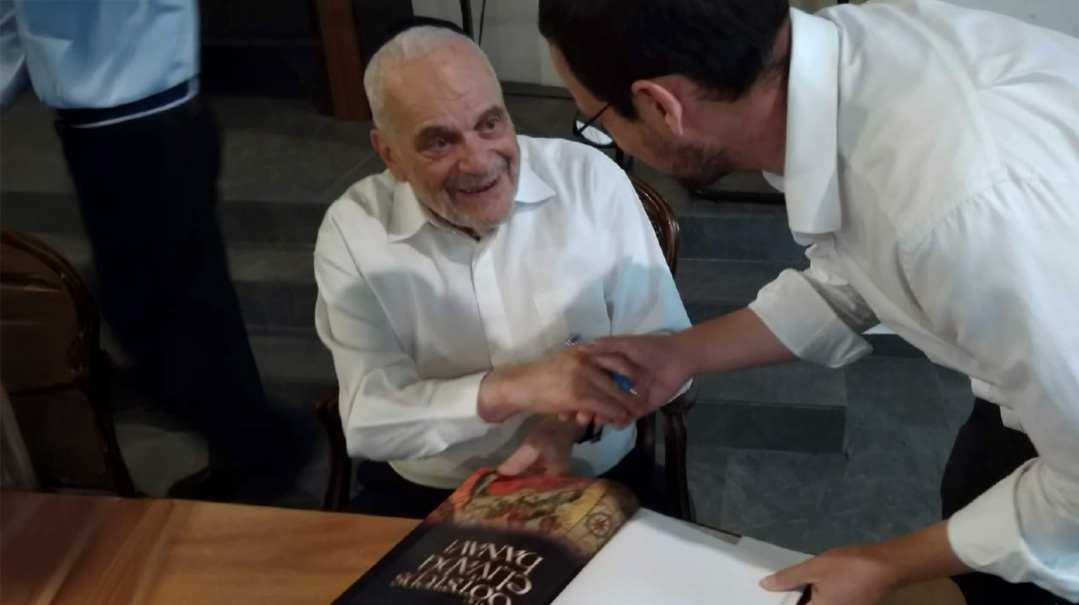Voice for a Nation


LEADING THE WAY “He was responsible for making The Jewish Observer the premier spokesman for daas Torah” explains Rabbi Nosson Scherman. “For 40 years he was its editor. He trained writers showing them how to write clearly and logically and usually contributing a great deal of his own rewriting. More often than not the most delicate and significant articles were written by him”
W hen the late Rabbi Moshe Sherer assumed the helm of Agudath Israel of America from his ailing cousin Elimelech (Mike) Tress his first concrete goal was the creation of a Torah magazine of ideas in English. He wrote to Telshe Rosh Yeshivah Rav Mordechai Gifter “[O]ur greatest tragedy is that we have no public organ through which to speak to the masses… I have always dreamed of putting aside all my other work and devoting myself exclusively to a large-scale English magazine.”
The magazine Rabbi Sherer envisioned would be a balance of the “timeless” and the “timely.” In the former category he placed fealty to the direction of gedolei Torah including the 1956 psak of the 11 roshei yeshivah against participation in umbrella organizations with heterodox groups as members and the falsity of the standard portrayal of Judaism as consisting of “three streams” of equal validity. The “timely ” which was even more critical in Rabbi Sherer’s view consisted of the analysis and interpretation of current events through the lens of Torah.
The mission statement in the first issue of The Jewish Observer which appeared in 1963 under the editorship of Rabbi Nachman Bulman noted that until then the American Torah world had “ ‘spoken’ its mind and heart to the remainder of American Jewry almost entirely through the literary ‘mouths’ of its critics and detractors.”
The new magazine was central to Rabbi Sherer’s vision of independent Orthodoxy which would no longer “entrust the interests of Torah institutions to the tender mercies of Jewish organizations or agencies whose fundamental life-principle is not that of Torah.”
In 1970 Rabbi Sherer and the chairman of the editorial board Dr. Ernst Bodenheimer approached Rabbi Nisson Wolpin who was then vice-principal of Yeshivas Ohr Yisrael in Queens and assistant head counselor to the legendary Josh Silbermintz in Camp Munk and offered him the editorship of The Jewish Observer. Rabbi Wolpin was fulfilled in his role in chinuch and went to consult with Rav Yaakov Kamenetsky. Reb Yaakov told him “Until now you were a mechanech of children. From now on you’ll be a mechanech for adults.”
For the next 39 years Rabbi Wolpin almost single-handedly put out The Jewish Observer monthly under the guidance of Rabbi Sherer an august editorial board and ultimately the Moetzes Gedolei HaTorah.

He said “Reb Aryeh you have a rare combination you have your finger on the pulse and you have a heart; and as long as you use both of these attributes in your writing you should keep at it. If you lose either of the two then stop”
The Jewish Observer enjoyed a near monopoly in high-quality English-language reading for the Torah public for the first quarter century of its existence. And at least in this case that monopoly was beneficial. The magazine became the authoritative voice for those outside the Torah community seeking familiarity with the Torah approach to contemporary issues and to those within the community seeking to further clarify their thinking.
Subscriptions were available at a nominal cost to yeshivah students and kolleleit and the arrival of each new issue in American yeshivos was an event. It is no exaggeration to say that The Jewish Observer provided much of the ideological underpinning for the generation of yeshivahleit coming of age in the ’60s ’70s and ’80s.
Even after The Jewish Observer’s monopoly ended it could still highlight issues of concern in a way no other publication could. Its 1999 special issue on Children at Risk sold 40 000 copies and had to be reprinted. It placed the issue on the communal radar screen as never before.
Rabbi Wolpin’s elegant pen and flawless editing helped to create a Torah reading public that could appreciate fine writing and sophisticated argument. And he nurtured much of the writing talent that has flourished in recent decades. (Excerpted from Mishpacha Issue 658)
Oops! We could not locate your form.













